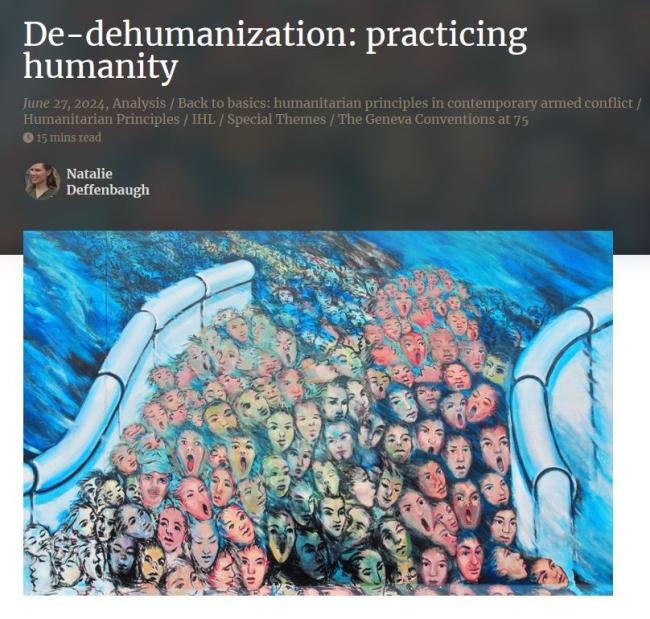De-dehumanization: practicing humanity

There is today an idea of a single humanity, with each member equally valued, and a global legal framework exists to prevent needless human suffering, including in war. Dehumanization arises as the negation of a common, positive, and mutually supportive humanity, though there is no single definition, and it certainly predates its opposite. Research indicates that dehumanization increases the risk of conflict and violence, increases the risk of abuses therein, and makes it harder to resolve conflict.
In this post – an overview of a forthcoming article written in her personal capacity – Natalie Deffenbaugh posits mirror definitions of humanity and dehumanization and what they mean, especially in relation to conflict and violence. She looks at why and how dehumanization happens and the real-world harm that can result when espoused or tacitly condoned by those holding power. She closes with an overview of how humanity, in global legal frameworks and as a Fundamental Principle, can curb and push back against some of the worst that dehumanization can do.
The post touches on the missing and their families as people whose humanity may be called into question in certain ways.

